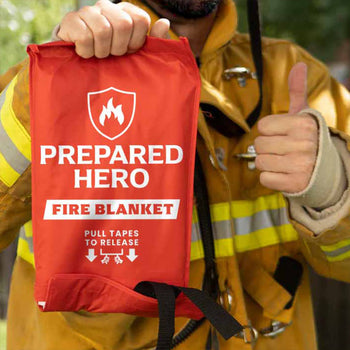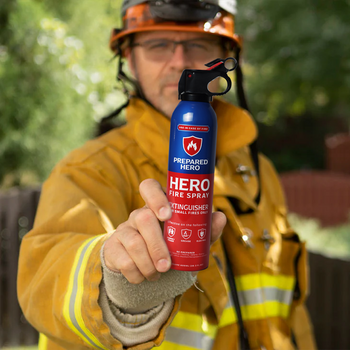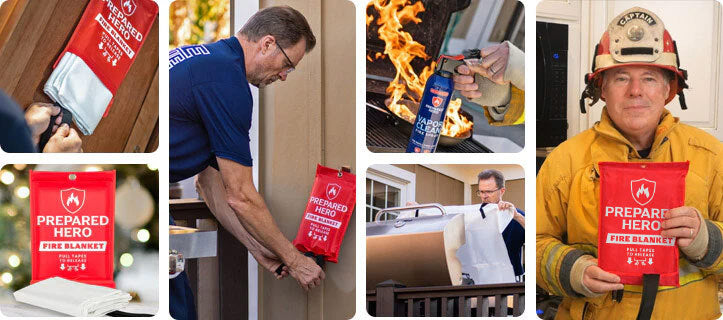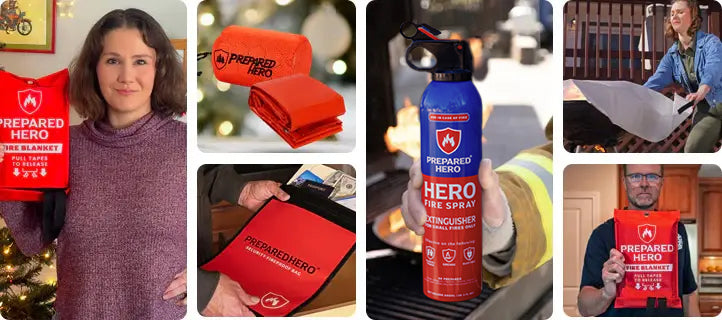Where you put your smoke detectors matters just as much as installing them. Proper placement makes sure they can detect...
The 2022 US tornado season saw 1,329 tornadoes across the country, with the majority in Mississippi, Texas, and Alabama.
While you can't stop a tornado from happening, there are certain things you can do to stay safe.
In this article, we'll talk about the states in Tornado Alley and how to prepare for tornadoes.
The Tornado Alley

The Tornado Alley also covers some portions of South Dakota, North Dakota, Iowa, Wisconsin, Minnesota, Illinois, Missouri, Indiana, Montana, Arkansas, Ohio, Colorado, and Wyoming.
However, the locations can change depending on which states get hit by tornadoes the most and other criteria used. Research also says that the main part of the Tornado Alley may shift eastward away from the Great Plains. It also suggests that tornadoes occur more frequently in the northern parts of the current Tornado Alley, where it reaches the Canadian Prairies.
Where Did the Term Tornado Alley Come From?
Tornado Alley was first used in 1952 by the US Air Force meteorologists Captain Robert C. Miller and Major Ernest J. Fawbush. They used it as the title of a research project that studies severe weather in portions of Texas and Oklahoma.
What States Are in Tornado Alley?

Here are the states in Tornado Alley:
- Texas
- Kansas
- Nebraska
- Oklahoma
- South Dakota
- North Dakota
- Iowa
- Wisconsin
- Minnesota
- Illinois
- Missouri
- Indiana
- Montana
- Arkansas
- Ohio
- Colorado
- Wyoming
States in the Center of Tornado Alley
- Texas
- Oklahoma
- Kansas
- Nebraska
States on the Outskirts of Tornado Alley
- South Dakota
- North Dakota
- Iowa
- Wisconsin
- Minnesota
- Illinois
- Missouri
- Indiana
- Montana
- Arkansas
- Ohio
- Colorado
- Wyoming
Most Tornado-Prone States in 2022
Mississippi was hit by the most tornadoes in 2022, followed by Texas and Alabama. Here's a complete list of states hit by the most tornadoes according to the National Oceanic and Atmospheric Administration.
| State | Number of Tornadoes |
| Mississippi | 183 |
| Texas | 159 |
| Alabama | 117 |
| Minnesota | 77 |
| Florida | 73 |
| Kansas | 68 |
| Louisiana | 61 |
| Oklahoma | 57 |
| Arkansas | 56 |
| Georgia | 56 |
Average Number of Tornadoes per State (1997-2022)
| State | Number of Tornadoes |
| Texas | 135 |
| Kansas | 92 |
| Oklahoma | 75 |
| Alabama | 69 |
| Mississippi | 67 |
| Illinois | 64 |
| Iowa | 62 |
| Missouri | 57 |
| Florida | 53 |
| Nebraska | 52 |
States in Tornado Alley at a Glance

Take a peek at the most notable disasters that hit the states in Tornado Alley:
Texas
The Waco Tornado of 1953 was one of the deadliest in Texas history, with 114 deaths and 597 injuries.
Kansas
The Great Plains Tornado Outbreak of May 25 to 26, 1917, saw a cluster of tornadoes hit several towns in Kansas, causing over 100 deaths. It was followed by the Udall Tornado of 1955, one of the deadliest in Kansas history, with 80 deaths and 270 injuries.
Nebraska
The Hallam Tornado of 2004 was one of the strongest and deadliest tornadoes in Nebraska history, with three deaths and extensive property damage.
Oklahoma
The Moore-Oklahoma City Tornado of May 3, 1999, was one of the most destructive tornadoes in US history. It caused 36 deaths and over $1 billion in damages. On top of that, the El Reno Tornado of 2011 is the widest tornado in the US, with a width of 2.6 miles.
South Dakota
The Tri-State Tornado of March 18, 1925, was one of the deadliest tornadoes in US history, with 689 deaths and over 2,000 injuries.
North Dakota
The Buffalo Tornado of 1957 was one of the deadliest in North Dakota history, with ten deaths and 100 injuries.
Iowa
The Davenport Tornado of 1876 was one of the earliest documented tornadoes in Iowa history, causing significant damage to the said city.
Wisconsin
The Barneveld Tornado of 1984 was one of the deadliest in Wisconsin history. It caused nine deaths and over 200 injuries.
Minnesota
The St. Cloud Tornado of 1886 was one of the deadliest in Minnesota history, leaving 72 deaths and 200 injuries.
Illinois
The Oak Lawn Tornado of 1967 was one of the deadliest tornadoes in Illinois history, with 33 deaths and over 500 injuries.
Missouri
The St. Louis Tornado of 1896 was one of the deadliest in Missouri history, with 255 deaths and over 1,000 injuries. It's followed by the Joplin Tornado of 2011, with 158 deaths and over 1,000 injuries.
Indiana
The Rochester Tornado of 1817 was one of the earliest documented tornadoes in Indiana history, causing significant damage to the said city.
Montana
The Great Plains Tornado Outbreak of June 5-6, 1959, saw several tornadoes hit Montana, causing significant damage and several deaths.
Arkansas
The Little Rock Tornado of January 21, 1999, was one of the deadliest in Arkansas history. It left 14 deaths and over 200 injuries in its wake.
Ohio
The Xenia Tornado of 1974 was one of the deadliest in Ohio history, with 32 deaths and over 1,000 injuries.
Colorado
The Windsor Tornado of 2008 was one of the deadliest in Colorado history, with five deaths and over 200 injuries.
Wyoming
The Great Plains Tornado Outbreak of June 5 to 6, 1959, saw several tornadoes hit Wyoming, causing significant damage and several deaths.
What To Do If You Live In Tornado Alley

If you live in Tornado Alley, you must have an emergency kit ready.
An emergency kit contains all the items you and your family need for 72 hours. Since a tornado can severely damage your home, cut power, and block access to food, an emergency kit can save lives.
Here's what your emergency kit should include:
Non-Perishable Food

If you live in a tornado-prone area, you need to have an emergency kit on standby without replacing the items in it. Enter non-perishable food that lasts for years.
There are two things to keep in mind when choosing what to pack. For one, you need food items that are not too bulky. You should also choose items that can fill you for as long as possible. These include protein bars and meal replacements.
Water

On average, humans can survive for three days without water. Since a tornado can block your access to clean water, pack a gallon of water per person daily.
Flashlight

A tornado can cause power cuts, which make things worse. Save yourself and your family by having a flashlight.
Prepared Hero's flashlight doubles as a baton you can use to protect yourself and your loved ones from attackers. You can also use it to break through debris.
Multi-Tool

A multi-tool usually contains a knife, pliers, a screwdriver, a saw, and more. It's handy for cutting cordage, preparing food, or opening cans during a tornado emergency.
Duct Tape

Duct tape comes in handy for quick, temporary repairs. It helps keep wind, rain, and other elements from further damaging your home until you can properly repair everything.
Poncho

A poncho is a must when evacuating your home.
This lightweight one-size-fits-all Hero Poncho protects you from the rain. It also prevents hypothermia by retaining up to 90% of your body heat.
Plus, it's thin enough to fit your tornado kit or family bug out bag. On top of that, this poncho also has a bright orange color that lets rescuers find you easily.
First Aid Kit

Have first aid supplies in your kit to patch up cuts, scrapes, and burns. A first aid kit can make all the difference when you don't have access to medical help.
Survival Bag

The next crucial item for your tornado emergency kit is a survival bag.
Prepared Hero's Survival Bag provides ample coverage yet is compact enough to fit your car emergency kit or pocket. The bag is also made of waterproof and windproof materials that reflect 90% of the heat to you, preventing hypothermia in cold weather.
Hand Crank Radio

A hand crank radio can receive weather updates from NOAA’s 24-hour station. During a crisis, instant alerts make a lot of difference.
Whistle or Loud Alarm

A whistle or loud alarm lets your companions and rescuers find you in case you get lost, stuck, or covered by debris somewhere.
The police-recommended Hero Defense Alarm includes a screeching siren and bright light that’ll help rescuers find you.
Walkie-Talkie

A walkie-talkie lets you communicate without relying on power or cell signal.
The PowerTalkieX Radio Set lets you communicate through a three-mile distance and 25-floor buildings with a crisp voice and noise reduction tech. To top it off, it comes with a hands-free set for easy communication.
Frequently Asked Questions
What is the number 1 state for tornadoes?
Texas is the number one state for tornadoes, with an average of 135 tornadoes per year, based on National Oceanic and Atmospheric Administration data.
What 5 states have Tornado Alley?
The five states in Tornado Alley are Texas, Oklahoma, Kansas, Nebraska, and South Dakota.
What 3 states have the most tornadoes?
The three states having the most tornadoes in 2022 are Mississippi, Texas, and Alabama.
What state is the heart of Tornado Alley?
The states in the heart of Tornado Alley are Texas, Oklahoma, Kansas, and Nebraska.
Conclusion

Tornadoes are one of the most dangerous weather phenomena.
So if you live in the states in Tornado Alley, you must know how to respond when a tornado hits. Remember, preparing for tornadoes keeps you, your family, and your properties safe.
Are you ready to complete your tornado kit? Go to Prepared Hero and get durable items for your tornado emergency kit now!

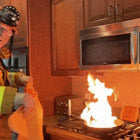 Fire
Fire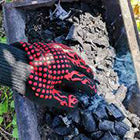 Safety
Safety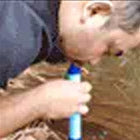 Survival
Survival Protection
Protection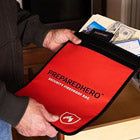 New
New Scouting America
Scouting America
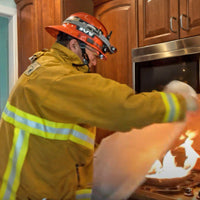 Fire
Fire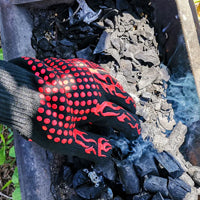 Safety
Safety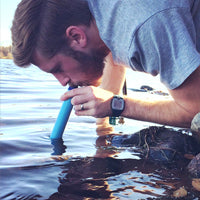 Survival
Survival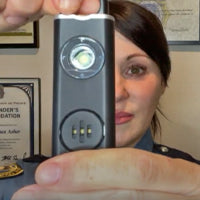 Protection
Protection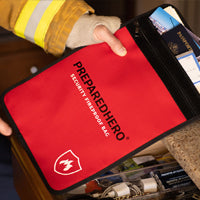 New
New
